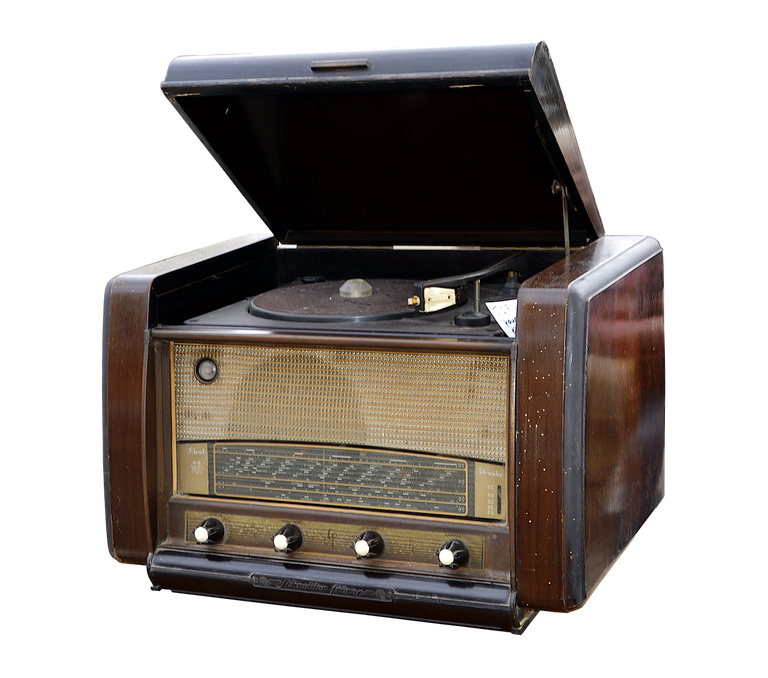Are Traditional Radio Stations Still Relevant?

(Image source: public)
I don't know if like me you are worried about the importance of radio stations in the digital age. Well I am. I still appreciate the value of a decent radio station that is able to enthuse its audience, whether that's local, national or global radio. Radio still has an important role to play there is no doubt but just like pubs on the high street that face demise so do many radio stations.
In the last fifteen years radio broadcasters have faced a huge challenge as a result of the effects of the internet and the new digital landscape. The creation of the MP3 file, streaming services, the inception of various media hardware devices and a multitude of software programmes and radio apps have made it possible for the sharing of music and personal information on a scale no one could have imagined twenty years ago.
Individuals can now be their own music directors accessing a plethora of music and information at low or no cost to themselves. At the same time with some basic kit they can broadcast themselves via podcasting for example. The developments online have been a challenge, indeed a threat, to the very existence of various radio stations, which have seen droves of their audiences move onto more diverse radio services that can be accessed online free of charge.

The digital revolution has brought with it Web 2.0, Web 3.0 and now Web 4.0 which has introduced social websites like Facebook and YouTube with AI now becoming more prominent. We have seen both commercial and non-commercial radio broadcasters responding to these new technologies in a whole host of differing ways, with collaboration being one of the main responses.
But is there a serious threat to conventional radio stations from social media websites or not? And if there is what can radio stations do to optimize the employment of social media and turn it to their advantage?
There can be no doubt that there are certain advantages for radio broadcasters when it comes to the internet.
However, there is a cost to traditional radio broadcasters when it comes to their own DJs and presenters, these personalities have helped shaped them and mould radio stations into what they are, solidifying the station's cultural identity. All of this is weakened due to the sheer wealth of information and entertainment available to consumers online and the fragmentation which occurs because of this.
The internet also allows listeners of traditional radio stations to engage with those stations much more directly. BBC Radio has ensured it is keeping up to date with these digital developments and has a strong online presence. It makes extensive use of Facebook and Twitter and provides online content as well as contact opportunities for listeners of its radio services, these social network outlets provide a mechanism for listeners to converse with BBC Radio and provide feedback.
With the advent of the internet and the creation of social media there is clearly a new and distinct media landscape which can incorporate radio services, albeit in a very altered capacity. The digital age has clearly created threats to traditional radio broadcasting but it also creates opportunities, the relationship between radio and social media is still an evolving one.

If radio still seeks to be a popular choice of media then it must continue to become more involved with the digital landscape. There is already a considerable amount of online activity being adopted by radio stations including, very importantly, the streaming of the station itself. However, the interactive element of social networking is crucial for radio audience appeal, and radio stations should become more creative and more effective in connecting with their audiences.
There's no doubt that radio has to keep up with modern trends and diversify if it is still to play a valid role in the whole media landscape. Just look at what the old PAL network managed to achieve and not just for Hive! I still appreciate radio. It is still a unique medium that offers a whole host of content that engages. Don't forget to listen to your local radio station from time to time. Use it or lose it!
Peace!
I think radio is still relevant and really important, especially when radios find their way to embrace technology, online streaming and content creations.
For example in Italy we have radio deejay that has a lot of great speakers and they talk about all type of topics: funny things, news, gossip, psychology, etc and they have a strong relationship with their audience.
So they have many podcasts recorded on Spotify for every program they broadcast and it's really interesting and entertaining.
Too bad these big radio stations don't serve the music properly... We lost those DJs whose work makes people actually discover new music. In these radios we don't find creative djs, no more
It's good to know that you still have some radio stations in Italy that are still dedicating a lot of their output to matters which mean something to the local audience. I think radio still has a huge role to play. If you can combine it with digital platforms and services like Spotify and create podcasts this is probably the way forward if traditional radio stations want to stay relevant.